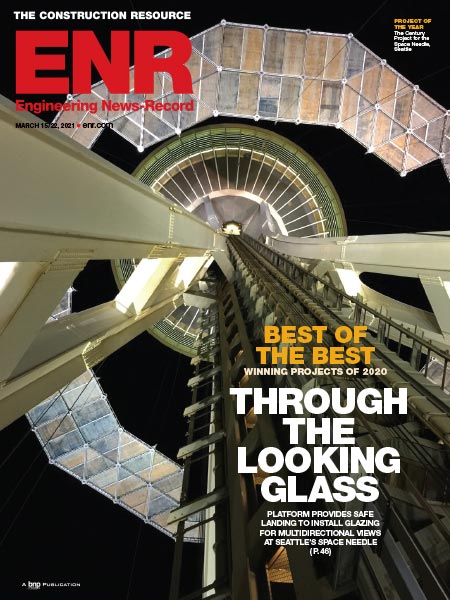With a price tag of around $66 billion, the U.K.'s next high-speed-rail project is pressuring engineers to minimize costs while maintaining quality. As they prepare to procure the $28.1-billion first phase between London and Birmingham, officials are urging the international construction community to bring innovative ideas to the 10-year program.
 |
| MCNAUGHTON |
The government approved phase one of HS2 two years ago. Since then, up to 1,600 people have worked on any given week to prepare draft legislation, which went to Parliament on Nov. 25. Including an environmental statement of 50,000 pages, the HS2 bill addresses all the requirements to procure land and build and operate the line.
The London-Birmingham link will run in tunnels and trenches for over half its 230-kilometer length; the rest of the route includes some 100 bridges and four stations. Civil engineering will account for about $23 billion, says McNaughton. A second phase, six years later, will extend HS2 by 189 km to Leeds and 153 km to Manchester.
"This is being designed as the backbone between eight of our 10 major city regions for the 21st and 22nd centuries," says McNaugton. Maximum delays of 30 seconds a train "define the civil engineering and architectural design requirements," he adds.
McNaughton cites the London terminal at Euston as an example of the tough standards the project must meet. Euston's 11 planned platforms will turn around 1,100-seat trains in 20 minutes, with arrivals and departures every three minutes.
"We go for the very highest quality. It will pay back many times over," says McNaughton. Planned embankments and trenches must take the forces of 360-km-per-hour trains at three-minute intervals for 19 hours a day and standards for earthwork will equal that for a safety-critical dam, he adds.
With the success in building the London-Channel Tunnel HS1 and the 2012 Olympic sites—and with Crossrail going well so far— the U.K. has shed its reputation for "doing an occasional big project and having big problems," say MacNaughton. He hopes HS2 will benefit from the lessons learned.
If tunneling technology can make major advances, "where is the same thinking about bridges and viaducts?" asks McNaughton, adding that building off-site will be one of HS2's "big innovation areas." Further, prefabrication will improve quality and reduce disruption as well as comply with the team's government mandate to spread construction benefits around the country, he adds.
Like the previous big projects, such as Crossrail, HS2 Ltd plans to procure target-price contracts with shared cost overruns and savings, says Gary Wright, a director at Rowsell & Wright, Harrogate, and adviser to HS2 Ltd. Contractors will come aboard early to advise on designs.










